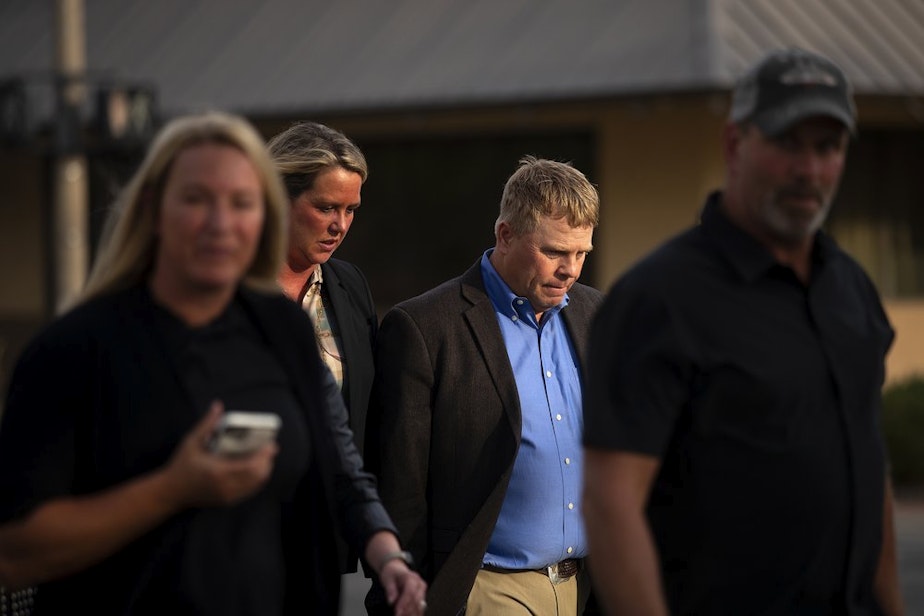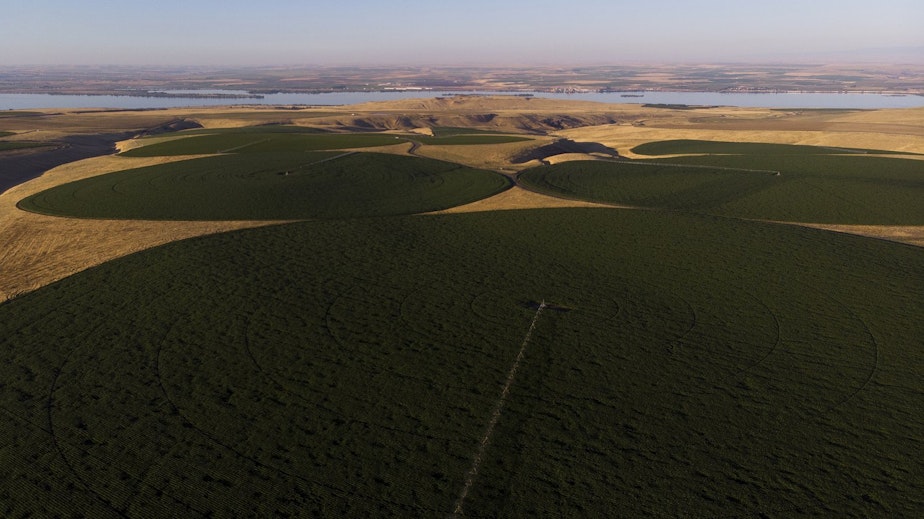In 'Ghost Herd,' greed and deception illuminate the fight for land ownership in the rural West

If you’ve eaten beef here in Washington, odds are you’ve bitten into one of the cows that helped make the Easterday family of Pasco, Washington very, very rich.
Cody Easterday had plans to protect that wealth by securing 265,000 cows for Tyson Fresh Meats and Segale Properties.
But there was one issue: those cows only existed on paper.
A new podcast from KUOW and Northwest Public Radio takes listeners to the Columbia Basin, where the value of dirt is illuminated by the Easterdays’ story of deception and greed.
Soundside host Libby Denkmann talked to the host and reporter behind Ghost Herd, Anna King, about the series.
Sponsored
Farming royalty
The Easterday family was as close as you could get to rural royalty in eastern Washington.
Their potato and onion empire was kickstarted by family patriarch Gale Easterday, a shrewd and respected businessman in his community. In 1989, Gale's son Cody Easterday became a partner in their business, Easterday Farms.
The roots of the Easterday family ran deeper than just crops, King noted.
"This family was like a spider web — connected to each other," she said.
Cody Easterday would sell the farm's onions and potatoes to his sister's restaurants, or his other sister's packing house.
Sponsored
From there, his sister would process those crops for retail. The waste from the onions and potatoes would go back to their family feedlot and be fed to cattle or hogs owned by their mother.
"You couldn't throw a rope without hitting an Easterday out here," King said.
The family business ballooned from a couple hundred acres purchased by Gale Easterday's father, to tens of thousands.
In just about 20 years, Cody Easterday had grown the family farm to a $250 million dollar juggernaut.
Sponsored
The 'ghost herd'
Trouble began to roll in after Gale Easterday's death in December 2020.
Not long after, Cody Easterday was caught inflating the number of cows he had on the books for Tyson Fresh Meats and Segale Properties.
The roughly 265,000 "ghost herd" of cows created a $244 million dollar scam, one of the largest cattle scams in American history.
King said the scam was prompted in part by Easterday's gambling addiction, which caused him to lose millions of dollars trading in the futures market.
"He was even moving the market so much that he affected the price of beef in America," King said.
Sponsored
In just one year alone, Easterday lost more than $50 million dollars on the futures market.

The price of dirt in the American west
Cody Easterday's swindle runs like a red thread through the fabric of "Ghost Herd," but the podcast digs into larger themes that probe what's happening in America's rural lands.
"Ultimately, land is power, and it has been the source of source of wealth for all generations of human beings that have walked this Earth," King said. "But now that it's owned by a lot of farmers and corporations, we're finding that Cody Easterday kind of illuminated how much land has changed in our West, and how much there is a fight over these resources."
Sponsored

Big corporations and hedge funds are moving in, and making it almost impossible for local farmers to compete.
Take what happened to farmland owned by the Easterday family: Farmland Reserve Inc., a nonprofit related to the Church of Jesus Christ of Latter-day Saints, paid $210 million dollars for the land.
"Farmers have become renters on our landscape, and it's really changed" the state of land ownership, King said.
Listen to the full interview above by clicking the play button above.
The first episode of Ghost Herd is available to listen now. You can stream wherever you get your podcasts, or on ghostherd.org






